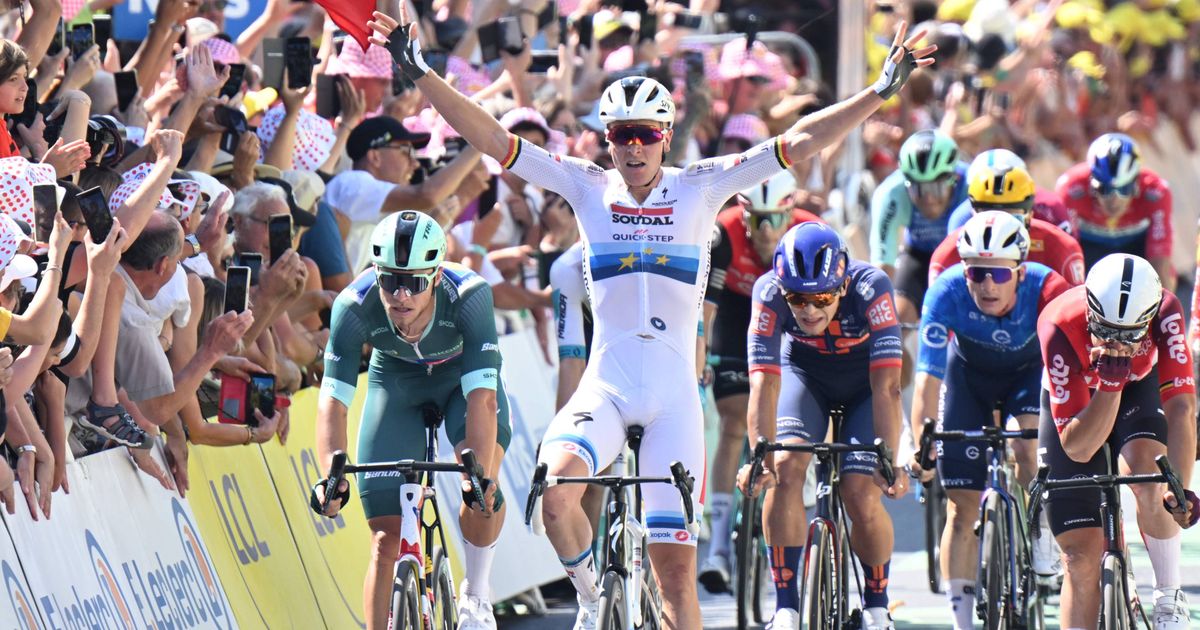The route for the 2026 Tour de France, unveiled a few days ago, has sparked mixed reactions among riders and fans. While most of the attention naturally turned to the mountain stages where Tadej Pogacar will pursue a record-tying fifth title, the fast men were left to assess whether the new design truly favors them.
Despite Tour route director Thierry Gouvenou’s previous criticism of flat stages, the 2026 edition features seven potential sprint opportunities, an increase from 2025’s five bunch finishes. These include stages 5, 7, 8, 11, 12, 17, and 21. However, as always, geography and fatigue may tell a different story.
Among those reacting to the new route was Tim Merlier of Soudal–QuickStep, who has three Tour stage wins to his name, including two in 2025. Speaking to Sporza, the Belgian sprinter acknowledged that the apparent sprint chances might not all materialize.
“Although I still have to look at the details. I personally see six opportunities, but some could even fall away if things have already been difficult. Of course, I’d like more sprint opportunities. But they want excitement in the Tour, so they’re taking out the boring stages.”
Merlier is doubtful regarding the final stage in Paris, where sprinters will once again face a challenging finale. The 2026 Tour retains the Montmartre circuit, which proved decisive in 2025, when Wout van Aert triumphed over Pogacar in a rain-soaked finish. While an additional lap of the Champs-Élysées has been added to give fast men more room to recover, the Belgian remains cautious and thinks the accumulation of efforts throughout the three weeks might be too tough for sprinters to hope for a stage win the last day.
“It is and will remain difficult for us. Especially because of those extreme stages before that. I hope to sprint on the Champs-Élysées again someday. That hasn’t happened to me yet,” he explained.
Beyond stage design, Merlier noted that endurance will again play a major role, with the Alps posing a brutal final test before Paris. “After those stages, the sprinters’ legs will be cut off,” he said, referring to the Alpe d’Huez double header in stages 19 and 20.
Former sprinter Marcel Kittel also joined the debate earlier this year, defending the importance of sprint stages within the Tour’s broader balance. “You certainly can’t blame the sprinters’ teams for trying to control the race and make sure there is a sprint,” Kittel said. “There are only a limited number of chances in the Tour, and this is a top-level sport.”

